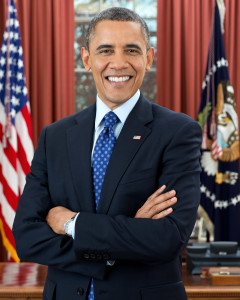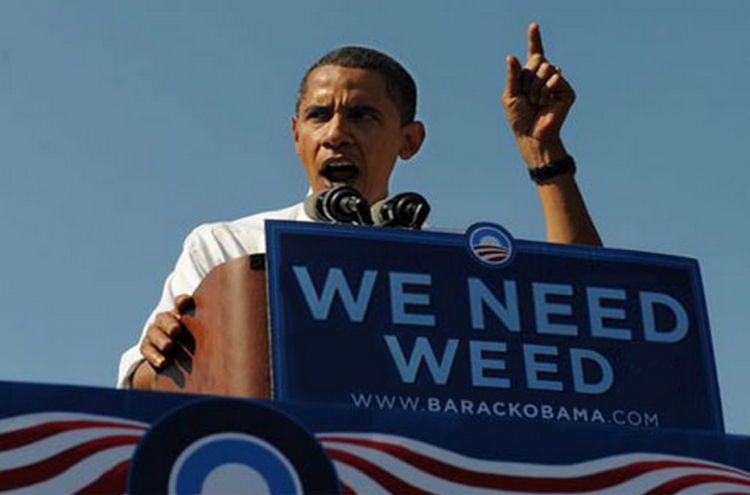President Obama made news this month when he declared pot to be less dangerous than alcohol and called the experiments with legal weed in Washington and Colorado “important.”
His statements, captured in an interview with David Remnick of The New Yorker, carry great weight in plenty of places, from those two states to the 19 others where medical marijuana is legal. But nowhere do they mean quite as much as they do in California.
That’s because medical pot in the Golden State has long struggled under a hostile federal government. MMJ has been allowed here since voters approved it in 1996, but not a year has gone by since without conflict between weed providers and federal law enforcement.
In 2003, Gov. Gray Davis signed a bill that allowed for medical marijuana dispensaries. Soon they began popping up across the state by the hundreds, so many that local officials in many places teamed up with federal prosecutors to shut them down.

Hundreds of municipalities have since banned pot shops outright, with the support of a 2013 ruling by the state Supreme Court. Some of these communities have helped federal authorities crack down on dispensaries within their borders.
The problem had only increased in recent years, with aggressive federal prosecutors targeting major pot shops across the state. U.S. Attorney Melinda Haag, for example, is notorious in Northern California for trying to shut down even dispensaries welcomed by their local governments, including the Harborside Health Center in Oakland.
When he took office, Obama promised not to target simple cannabis users. Indeed, the raw number of arrests for possession has dropped during his terms in office and, more significantly, so has the number of arrests relative to the steadily increasing rate of marijuana use in the United States.
But prosecutions of growers, including patients who cultivate their own medical pot under state law, have increased dramatically since George W. Bush left office in 2009 – even though Obama promised to target fewer MMJ growers. And the DEA is still used as an attack dog against medicinal providers, regardless of whether they obey state rules.
Nonetheless, the Department of Justice promised in August not to interfere with states that legalize or with businesses that provide legal weed, as long as they enforce certain federal guidelines, such as preventing drug violence. Many in the marijuana industry were skeptical, but took it as a hopeful sign.
So far Obama has kept his word, mostly, and his words to The New Yorker suggest California could safely move beyond medical marijuana to full legalization, as the state is likely to do this year or in 2016. Four ballot initiatives are currently in the works for 2014, and though it’s an open question whether any of them can make the ballot this time around, voters here are in the mood to legalize.
Obama told Remnick he considers weed unhealthy and “a waste of time,” but said it’s important for legalization in Colorado and Washington “to go forward because it’s important for society not to have a situation in which a large portion of people have at one time or another broken the law and only a select few get punished.”
 California Marijuana Market Breaking "Marijuana News" from CA
California Marijuana Market Breaking "Marijuana News" from CA


